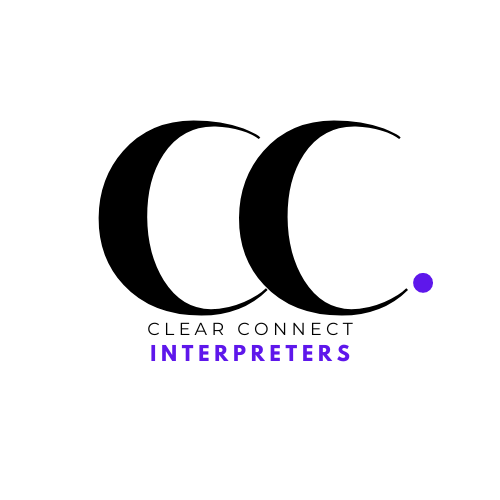Enhance Language Support.
Boost Patient Access.
In medical emergencies or routine care, clear communication is a must for achieving great patient outcomes and provider satisfaction. In many states, language support is a civil right mandated by law. With those facts in mind, CC Interpreting has built medical interpretation options that work well for your patients, their families and your staff.
Effective communication with patients and their families in medical settings is vital.
Research shows that people who are at higher risk of miscommunication are also more likely to experience medical errors.
In The Last 12 Months, How Many Limited English Proficiency (LEP), Patients Did Your Facility See?
ASL?
Spanish?
Haitian-Creole?
Tagalog?
Korean?
Mandarin?
Clients We Work With

Long-Term Care, Skilled Nursing Facilities
Language interpreting in long-term care facilities is essential for promoting effective communication, ensuring high-quality care, respecting cultural diversity, facilitating family involvement, addressing emotional needs, and meeting legal requirements. We strive to provide access in these settings to ensure these objectives are met with quality standards.
Urgent Care & Other Medical Facilities
Language services play a critical role in urgent care and doctor appointment settings by promoting effective communication, improving the quality of care, respecting cultural diversity, enhancing patient satisfaction, reducing healthcare disparities, ensuring legal compliance, and optimizing healthcare delivery. Our objective is to provide a quality standard of service in the most cost effective manner.
Services
VRI-Video Remote Interpreting
Within minutes, Clear Connect can provide access to a pool of interpreters as simply as launching a web browser. VRI is accessibility made simple.
In Person Interpreting
From our pool of interpreters we provide skilled interpreters to facilitate ease of communication between patient and staff.
Some Common Questions
Why is medical interpreting important?
In multilingual nations such as the United States, medical interpreting is increasingly important given that hospitals are dealing with an increased number of limited English speaking patients.
As an example, there are currently over 57 million Spanish speakers in the United States and this figure is constantly on the rise. Healthcare centers need to be prepared with an effective language access plan since some of their patients may speak Spanish as their primary language.
Failure to communicate effectively may lead to grave medical errors, poor health outcomes, and even legal liability. Medical interpretation is a key element in providing equal access to healthcare for all patients, regardless of the languages they speak.

What is the difference between an interpreter & Translator? Can a staff member do both?
Medical translators focus on written medical documents to accurately translate text from one language to another. On the other hand, medical interpreters work in spoken or sign languages, serving as a conduit between the healthcare provider and the patient as they communicate in real-time.
A medical translator may also become a medical interpreter given that the required skills for both occupations are closely related. However, they are separate professions. Each has specific training. Just because someone is qualified to translate medical texts does not automatically mean that he or she is qualified to medically interpret a medical consultation or emergency.

Are medical centers required to have medical interpreters available?
In the case of the United States, laws such as Title VI of the Civil Rights Act and the Americans with Disabilities Act have been passed to ensure that healthcare is accessible to every person regardless of their proficiency in English.
In addition to the legal requirements to provide language access, the positive impact of healthcare interpretation services on patient care outcomes can not be overlooked. This is especially true for healthcare centers located in areas with a culturally diverse population.
What is the primary role of a medical interpreter?

Medical interpreters are specialized language professionals who facilitate communication between healthcare providers and patients who do not speak the same language. Their primary role is to ensure the accurate exchange of medical information (i.e. medical history, treatment options, and more) between both parties.
Just like other interpreters, they display excellent proficiency in the languages they speak and demonstrate the ability to interpret between them effectively.
For medical interpreters, what sets them apart from other interpreters is that they have a thorough understanding of complex medical processes and terminologies in the medical field, allowing them to navigate through healthcare settings effectively. This serves as a protection for both patient and medical establishment.
How are medical interpretation services delivered?

Generally speaking, interpretation services (whether medically related or not) can be provided either on-site or remotely. An interpreter may be physically present during a medical consultation or emergency to support doctors in administering treatment.
Conversely, language support can also be done remotely either through Over the Phone Interpretation (OPI) or Video Remote Interpretation (VRI).
What are the advantages of having a qualified language interpreter available to patients?

Improved Communication
A qualified medical interpreter can help the healthcare professional, and the patient communicate effectively by ensuring that both sides understand and express themselves accurately. This can assist to avoid misconceptions and offer the best possible treatment for the patient.
Increased Trust and Confidence
Patients may feel more at ease and secure disclosing sensitive or personal information in the presence of a medical interpreter because they know the interpreter is bound by confidentiality and will appropriately express their words and concerns.
Better Health Outcomes
Accurate diagnosis and therapy need effective communication. A qualified medical interpreter may assist guarantee that the patient receives the proper therapy by providing clear and accurate interpretation, resulting in better health results.
Reduced Healthcare Costs
Miscommunications can result in unneeded testing, treatments, and hospitalizations, all of which can be expensive for both the patient and the healthcare system. Having a medical interpreter on staff can assist to decrease these expenses by ensuring that the patient receives the correct care the first time.
Our Process is Simple.
Get in touch with a facilitator today.
Phone
973-218-5493
info@cclanguageaccess.com

